- Signpost
- Posts
- 🌍 West Asia: France, U.K.*, and Canada* to recognise Palestinian State
🌍 West Asia: France, U.K.*, and Canada* to recognise Palestinian State
*Terms and Conditions Apply.

What the media says, what it means, and why it matters.
Was this forwarded to you? Signpost is a free weekly newsletter analysing what the media says, what it means, and why it matters. It’s free to subscribe. Alternatively, you can add me on LinkedIn.
Hi Signposter. Back in January, I wrote an issue of Signpost that looked at how the ceasefire between Israel and Hamas was reported in the news in the Arab world and in Israel (you can check it out here). It was the third ever issue of Signpost, fairly early in this newsletter’s journey, but there was enough there for a friend of mine to mention to me that he felt I had written the newsletter with a different energy than I had previous issues. It felt, according to him, like my personal biases and values were creeping into the story. My understanding of his feedback was that he felt I was imposing my own values and expectations of how the story should have been covered in Haaretz, rather than understanding why it was covered the way it was covered (interestingly, another friend of mine disagreed with this opinion, which goes to show how differently we process information).
Let’s make a few things crystal: I am Muslim, and I have grown up in the Gulf, in a country that only normalised relations with Israel less than five years ago. The issue of the State of Palestine is, understandably, a sensitive one, especially since I have met many more Palestinians than I have Israelis. Despite that, I try not to project my own biases into a situation that I am not directly involved with, and cannot truly help to change. This way, I feel morally at peace at my own sense of helplessness.
I took my friend’s words seriously because he is a good friend and I respect his opinion and on some level I agreed with him. My response was to avoid any mention of the Israel-Hamas war in upcoming issues. I have since written about 30 or so more issues of Signpost. I understand my own process and choices for writing this newsletter a lot better now than I did back then (and, I suspect, I will understand my own choices even better another 30 issues from now).
However, one memory kept replaying in my head for the last few months. In 2006, in my first year of undergrad in Communication and Media Studies, a great truth was revealed to me: there is no such thing as ‘unbiased’ news. All news, by design, is biased. Reporting on one story means you are biased against reporting on another story. A truly unbiased news media would report on all stories in the world equally at the same time. Which is impossible.
This isn’t to say that being biased in inherently bad. At least, I don’t think so. You have to put the borders around your own awareness and knowledge in some way to maintain your own sanity and to actually move forward. Some news media are more open and overt about their bias, others try to balance their biases through rigorous guidelines and checks and balances.
The truth is that both exist in the world and as readers, the responsibility is ours on how we interpret this information. My attempt with this newsletter is not to tell you what’s right and what’s wrong, or what you should or shouldn’t be doing. I am simply providing you a lens, albeit my lens, through which you can view the world.
So Signpost is, by design, biased. Perhaps not in the way you think of bias. Perhaps not in the way I want to be biased. But to disregard the existence of bias in my writing would be lying. It exists. I don’t intend to hide it. My attempt is to ensure that despite the bias, you can understand what it is I’m trying to say, and why. The same semiotic and linguistic lens I apply to the media I write about here applies to how you read this newsletter as well.
With all that said, let’s return this week to the ongoing Israel-Hamas war and continuing humanitarian crisis, and how that has publicly forced the hands of three of the seven G7 countries.
SIGNPOST UPDATES
Last month Christian Horner, Formula One team Red Bull Racing’s team principal and CEO, was unceremoniously fired after leading the team for two decades. Speculation was rife whether the Red Bull Racing’s world champion racing driver would now jump to another team at the end of this season. Max Verstappen has instead reiterated his plans to stay at Red Bull Racing till 2026. Read my original Signpost issue here.
THE STORY SO FAR
🇺🇳 147 (+ 3 more?)
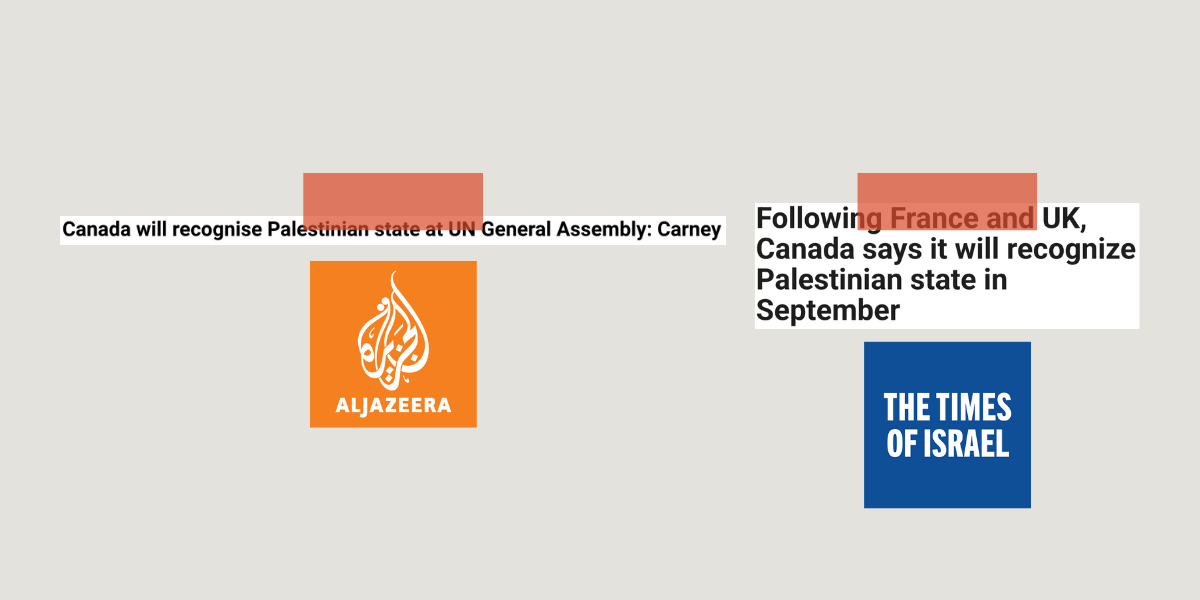
That’s how many countries currently recognise the State of Palestine. The three nations likely to join this club in September are France, the U.K. and Canada, who all announced their decisions to do so this week. What makes this unique is not only are these countries the first members of the G7 to publicly indicate their intentions, they are also all major U.S. and Israel allies.
France was the first to announce their intentions on 25th July, followed by the U.K. on 29th July and Canada on 30th July. While the conflict between Israel and Palestine can trace its roots back to the late 19th-early 20th century, it’s clear that the current Israel-Hamas war in Gaza has moved the needle in a way that is seemingly out of step with a great number of allies.
Why now? Part of the challenge has been that of the 147 nations that currently recognise the State of Palestine, several of them do not also recognise the State of Israel. This includes many Arab and Muslim-majority countries, though there has been significant breakthroughs in that space with the Abraham Accords in 2020, when the oil-rich, U.S. allied Arab countries of Bahrain and the United Arab Emirates normalised relations with Israel. This is despite these nations having decades of enmity and fundamental theological disagreements with Israel, and a push by them to have Israel revert to its 1967 borders.
On the flip side, several Western European and North American states have not recognised Palestine mostly to push for a two-state solution, to support a democratic country in the region (Israel), along with some theological reasons (especially on the far right), though it’s hard to dismiss any remnants of World War II guilt that these nations may be dealing with.
Criticism of Israeli policy and military action is nothing new when coming from the Arab-Muslim world, however this is the first time (at least in my lifetime) that several strong Israeli and U.S. allies are coming down hard, publicly, on Israeli offensives in Gaza. The word ‘genocide’ has been thrown around more than once regarding Israel’s blockade of Gaza where people are now dying from starvation rather than weaponry. Politically, the populations of most Western European and North American countries have been more outspoken in their support for Palestine than previous generations.
The recognition of the State of Palestine from three of the seven G7 nations does come with strings attached: the U.K. (a permanent member of the UN Security Council and a nuclear power) has stated that they will recognise Palestine unless Israel lets in more aid, signs a peace deal with Hamas, and stops expansion, while Canada has called for the complete disarmament and no more political involvement of Hamas, along with fresh elections in the West Bank.
Should the U.K. and France formally recognise Palestine at the 80th Session of the United Nations General Assembly in September 2025, there will soon be four permanent members of the UN Security Council who will recognise the state, including China and Russia. The U.S. will be the only remaining hold out.
In this issue of Signpost, I will analyse how the news was reported from the biggest English-language Arab and Israeli news media: Al Jazeera and The Times of Israel.
HEADLINE NEWS
🇶🇦 AL JAZEERA: Canada will recognise Palestinian state at UN General Assembly: Carney [link]
📢 Reading the Headline
The headline makes the intention very clear from Canadian prime minister Mark Carney — Canada ‘will’ recognise Palestine. It is, as the headline is written, a done deal. The subheading clarifies the Canadians demands — ‘Hamas cannot play a role in the future of Palestine’.
📸 Visuals
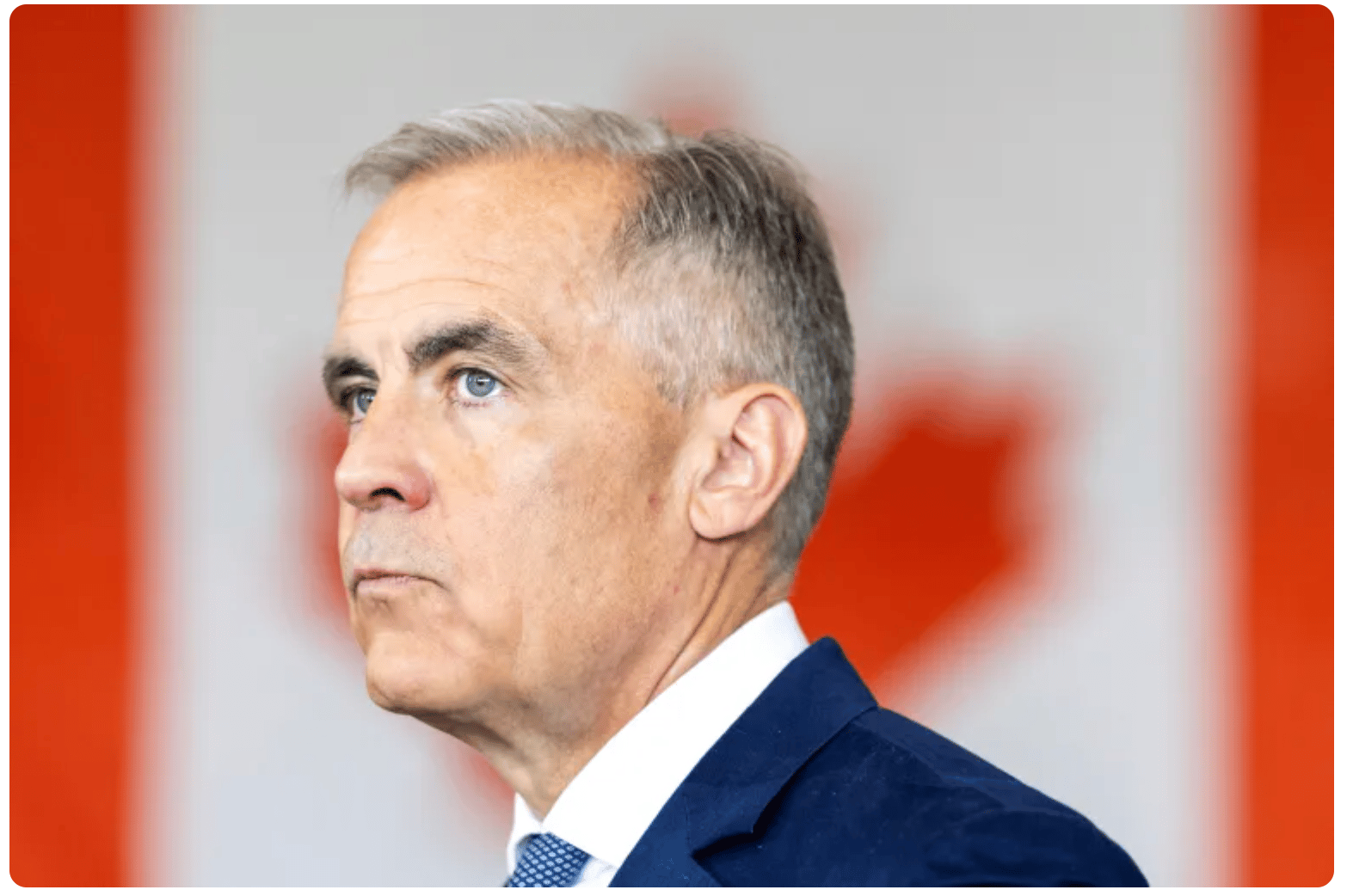
There are four visuals used in this article, including two videos. For the purposes of this analysis, I will stick to the two images that are used in the article.
The header image shows a headshot of Carney looking very serious. His lips are pressed together, though it looks like he might be mid sentence. He is wearing a dark blue jacket, a white shirt, and a blue patterned tie. In bokeh in the background is an image of the Canadian flag, with Carney placed right in front of the large red maple leaf and framed by two red bands on either side.
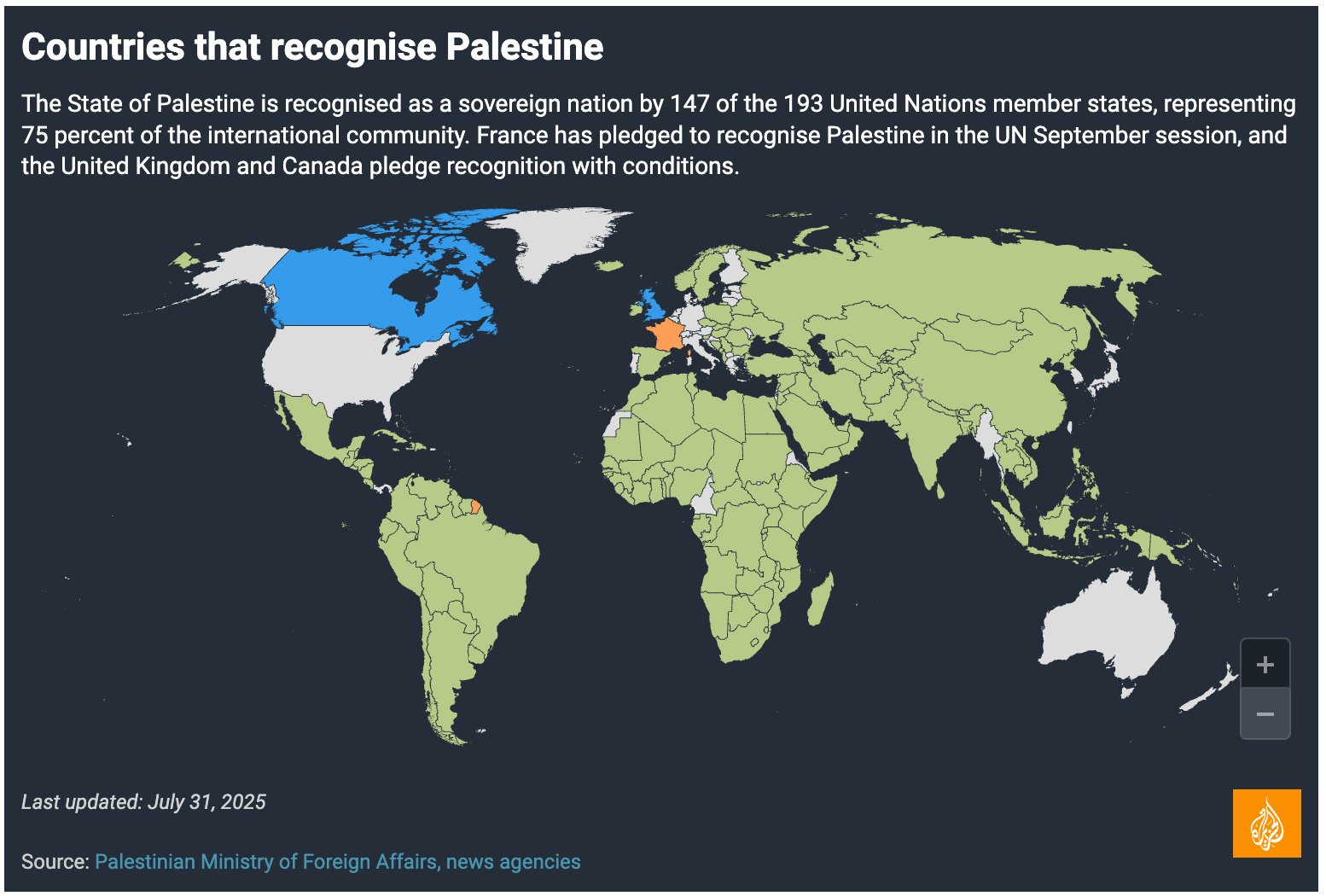
The second visual is an interactive map that shows all the countries that recognise Palestine. The 147 nations are show in green, with France shown in orange, and the U.K. and Canada shown in blue. The remaining countries are shown in grey. It gives you a quick visual footprint to better understand where the countries who do not recognise Palestine are clustered, specifically in North America, Western Europe, Australia, New Zealand, Japan, Myanmar, and a few nations in Africa.
✍🏽 Words
The article begins by saying ‘Canada has joined several Western countries’ in their recognition of Palestine, even as ‘Israeli atrocities’ continue in Gaza. Carney’s statement explains that a ‘two-state solution’ is “no longer tenable” to be achieved through a ‘negotiated peace process’, forcing Canada’s hand.
The article reiterates that Canada has joined both the U.K. and France in similar recent announcements from ‘earlier this month’. However, what effect this will have on ‘Israel’s ongoing war in Gaza and the expansion of illegal settlements in the West Bank’ is ‘not clear’. One of the stipulations behind Canada’s recognition is ‘reform from the Palestinian Authority and President Mahmoud Abbas’, as well as ‘general elections in 2026’ in the West Bank. According to the article, ‘Hamas can play no role in the future of Palestine’ as per Carney’s statement, which, the article argues, ‘may taint any democratic process’.
The article then states that the U.S., ‘Israel’s top ally’, has dismissed the Canadian, British, and French action towards Palestine, saying “it’s not going to change anything” and that it’s like “rewarding Hamas”. The article mentions that U.S. president Donald Trump and his team have been ‘uncompromising’ allies of Israel, even in the face of ‘UN experts and rights groups’ phrasing Israel’s actions in Gaza as ‘committing a genocide against Palestinians’. Here we get a reminder of the death toll — ‘60,000 Palestinians in Gaza’ have been killed with the area ‘flattened’ since the beginning of the war.
The article ends with further discussion around Canadian calls for sanctions against Israel for ‘human rights violations’, including Canadians protesting the exports of weapons from Canada to Israel — something that Canada said it would stop doing, until ‘a report based on Israeli tax records’ showed that ‘weapons have continued to be sent [from Canada] to Israel’.
❓ What it means
Very evocative language is used in this article. Words like ‘genocide’, ‘atrocities’ and ‘human rights violations’ come up regularly to describe Israel’s offensive in Gaza. Also, the U.S. support of Israel is put under the microscope, questioning why when other allies of both the U.S. and Israel are recognising Palestine, the U.S. has refused to do so.
It’s no secret that Al Jazeera has been, and will likely continue to be, a pro-Palestinian news outlet. It is banned from reporting directly out of Israeli territory and the West Bank and Gaza. In many ways, the article is pointing towards the current announcements from France, the U.K., and Canada as justification for their relentless reporting of the news from Gaza. This is despite Al Jazeera, which is funded by the Qatar state, being accused of being a mouth piece for Hamas.
⚠️ Why it matters
If it were not true, why would these countries make such announcements? A few months ago at the launch event of a new PR company in Singapore, I spoke to a media entrepreneur who said that he couldn’t understand how the coverage of the conflict on Al Jazeera is so different from everywhere else he reads. According to him, it felt like the other news media were either hiding or downplaying the seriousness of the issue, and he trusted Al Jazeera more than the others when it came to this issue.
With the announcements from the three nations this week, Al Jazeera’s reporting on the issue has been given a huge dose of credibility. Having said that, one sentence stood out to me. The statement that refusing Hamas any involvement in the future of a Palestinian state ‘may taint any democratic process’ does not overtly, but covertly, imply that Hamas is a legitimate political force in Palestine that has backing of the people. Despite the terrible death and destruction that has escalated violently since Hamas’s attacks on Israel in 2023, Al Jazeera believes they still have a political role to play in the governance of Palestine.
FOR YOUR CONSIDERATION
💡 Individual Contributors (ICs) and Hybrid Professionals — here’s how you can Communicate With Intention.
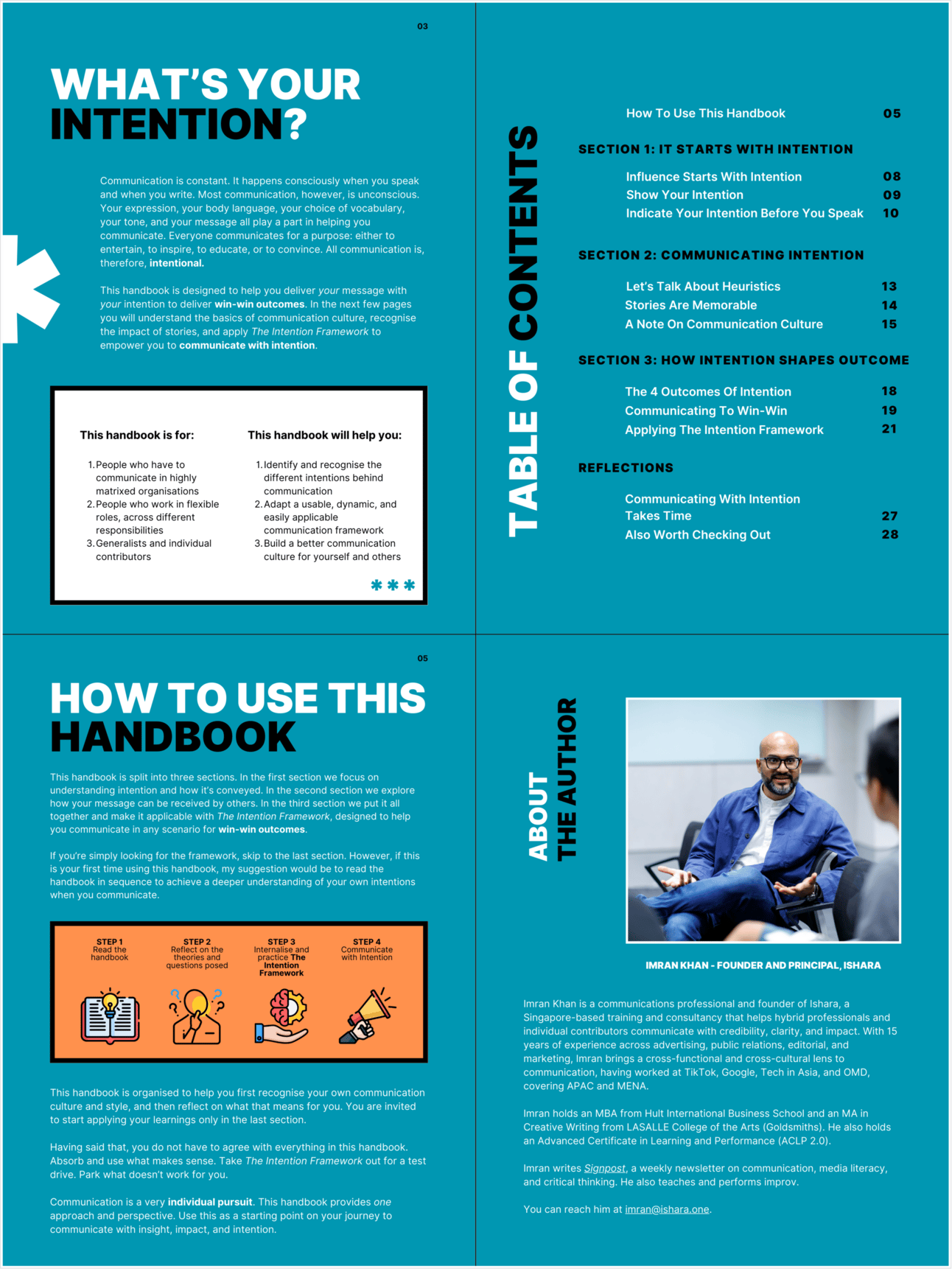
Introducing the Communicate With Intention Handbook, a 30-page document to help individual contributors (ICs) and generalists communicate with insight, impact, and intention.
The handbook is a guide to help you:
1. Understand how your intention can be received by your audience
2. Explore the spectrum between 'intention' and 'manipulation'
3. Communicate better to deliver win-win outcomes
Click here to buy now.
🇮🇱 THE TIMES OF ISRAEL: Following France and UK, Canada says it will recognize Palestinian state in September [link]
📢 Reading the Headline
The headline makes it clear that Canada’s announcement is not an isolated incident but the latest update in an emerging trend. The subheading further explains Carney’s reasoning, but also includes the Israeli response, saying that it is a “reward for Hamas”, and ‘harms hostage-truce talks’.
📸 Visuals
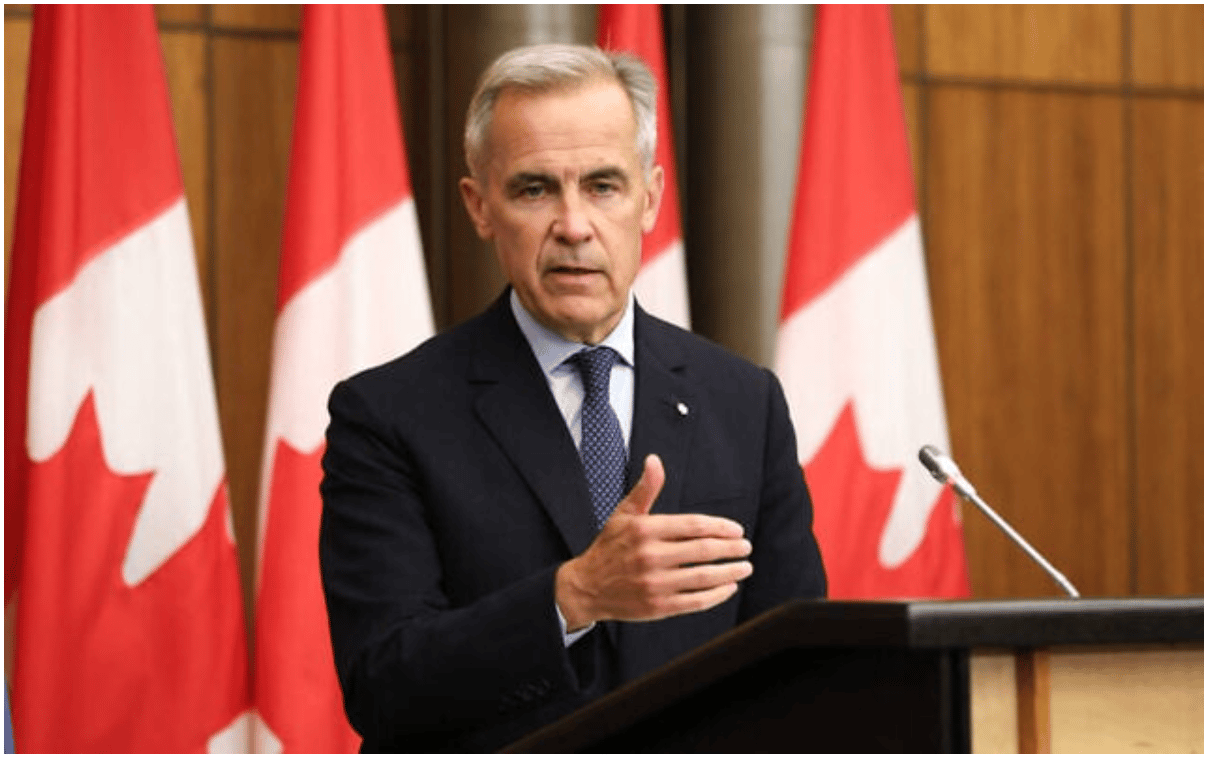
Four visuals are used for this article, however for the sake of this analysis we will look at three. The header image shows Carney standing behind a podium and speaking to the media announcing his decision. He is wearing a black jacket, a light blue shirt, and a dark blue patterned tie. He is gesticulating with his right hand, with his right arm placed in front of him, his palm facing his body while his thumb is pointing upward. Behind him are four Canadian flags arranged neatly and precisely to display the red maple leaf as they drape.
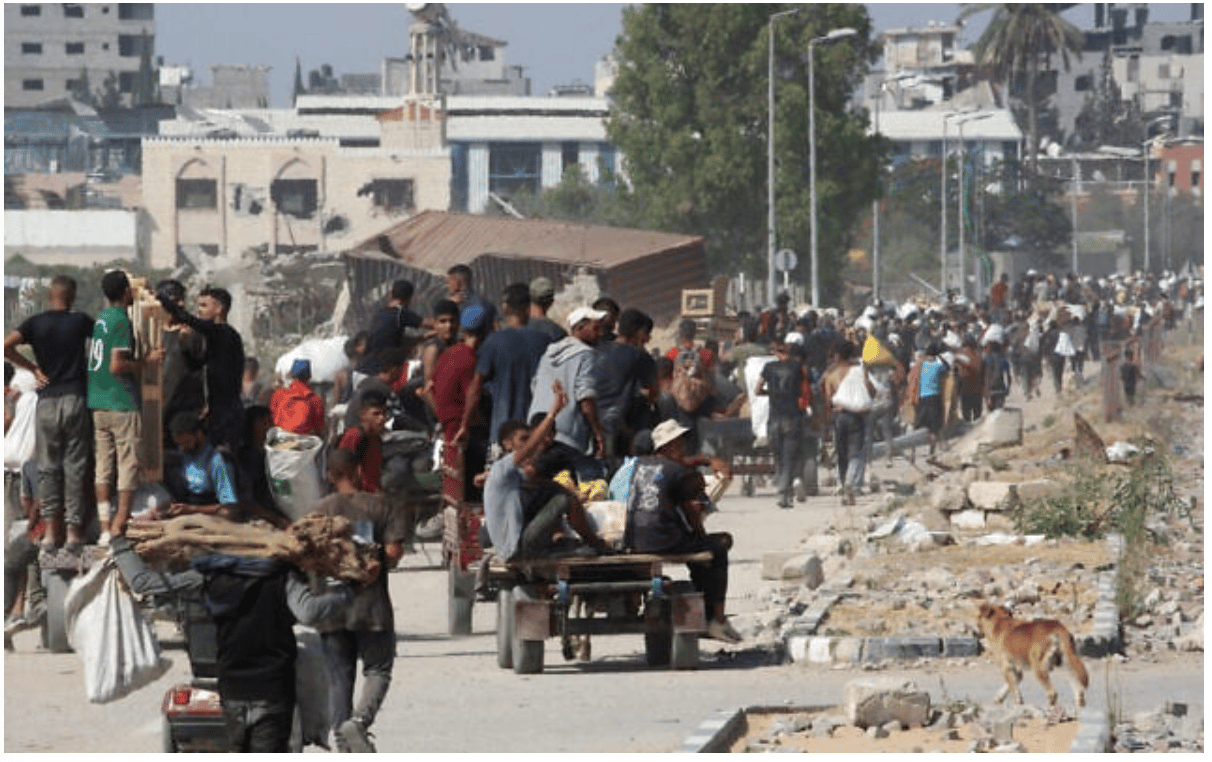
The second image is taken from a Palestinian refugee camp showing a long line of people carrying, according to the tagline, food parcels as they head towards safety. Some of them are on trolleys, some are on two wheelers, most are walking. There are many people who are carrying their belongings, white sacks (which likely are the food parcels), what look like sticks, and more. There are some buildings in the background, and what is likely a mosque on the left, but the road dividers to the right of the image are either uprooted or damaged. A solitary stray god walks alongside.
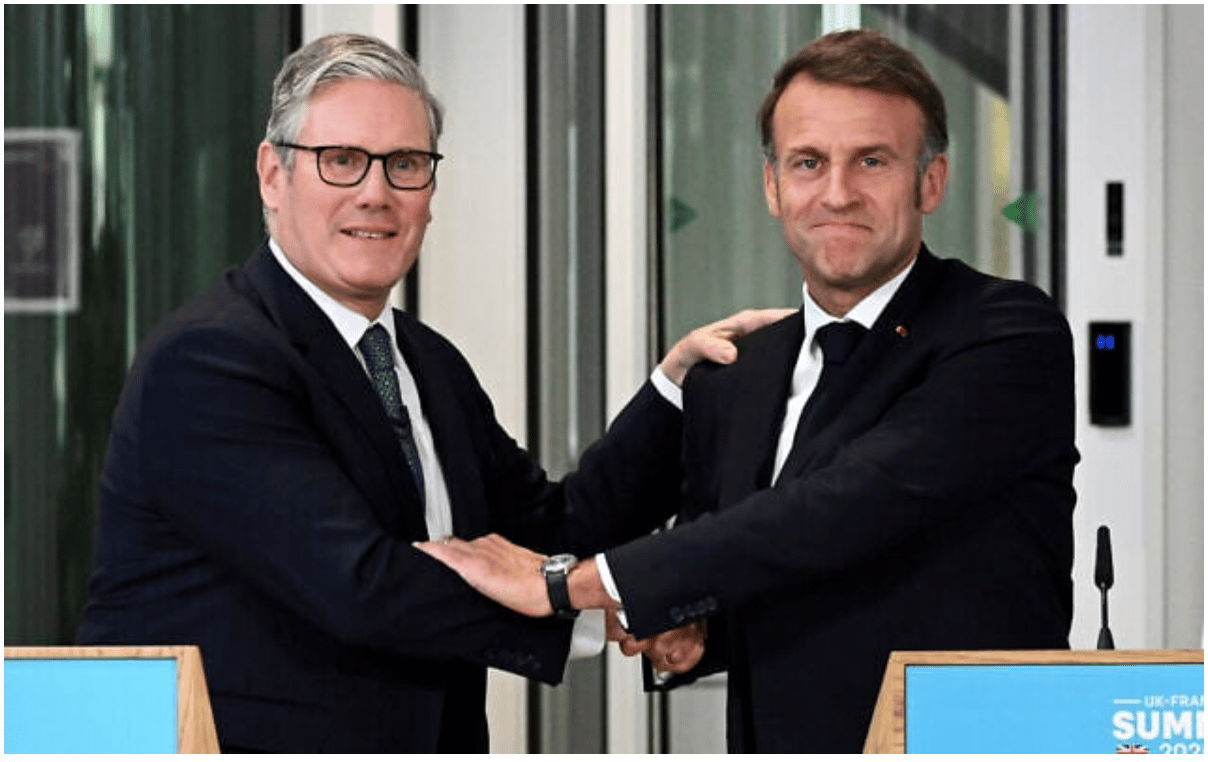
The following image is of U.K. prime minister Keir Starmer shaking hands with French president Emmanuel Macron, taken from their UK-France Summit earlier this year. Both men have their right hands locked tightly together in a handshake, while their left hands are placed on each others’ shoulder and arm. It is the closest to hugging they can get to without actually hugging. They are both standing in front of two podiums that has the summit branding on them in sky blue, while both are dressed in dark suits and white shirts. Macron looks proud and smug about their handshake, while Starmer looks surprised by it.
The final image shows the prime minister of Malta Robert Abela speaking to journalists.
✍🏽 Words
The article begins by calling Carney’s announcement a ‘fresh diplomatic blow to Israel’, before providing detailed quotes from his statement. The article also reminds us that ‘Canada had long stated it would only recognize a Palestinian state at the conclusion of peace talks with Israel’, but Carney says that the ‘reality on the ground’ meant such an arrangement was impossible. One of the quotes included from Carney’s statement is “Canada condemns the fact that the Israeli government has allowed a catastrophe to unfold in Gaza”.
Israel’s foreign ministry’s rejection of the news is mentioned next, along with their statement saying that it is a “reward for Hamas”. A similar statement is published by Israel’s ambassador to Canada, saying that the country “will not bow” to “distorted” international pressure, and that recognising Palestine without “accountable government, functioning institutions, or benevolent leadership” only “legitimizes the monstrous barbarity of Hamas”, punishing both “Israeli and Palestinian victims of Hamas”.
A very different statement is published next from Palestinian Authority president Mahmoud Abbas, calling the announcement “historic” to “enhance peace, stability, and security”. The article then further explains that Carney’s announcement comes ‘on the heels’ of similar French and British announcements, as ‘anger grows among Israel’s allies’ upset about the humanitarian ‘situation’ in Gaza. Malta’s recognition of Palestine is also mentioned here.
Here we hear from experts, including from a former ambassador, who says that Carney’s announcement is “just a rhetorical statement” meant to “show displeasure and disapproval” of Israel’s actions on the ground. Starmer’s and Macron’s announcements are mentioned next, including Israeli prime minister Benjamin Netanyahu’s negative response to them. Macron’s announcement is positioned as one that ‘did not offer Israel a way to avoid the unilateral declaration of Palestinian statehood’, unlike Starmer’s. Macron, it is mentioned, was also ‘pushing Starmer to follow his lead’.
Another expert, this time a director of a policy think tank, calls the announcements “purely symbolic” and one that “rewards terrorism”. The article reminds readers that Germany, ‘one of Israel’s closest allies’, and Italy have not joined the chorus of their European counterparts. However, ‘Norway, Spain, Ireland, and Slovenia’ now also recognise Palestine.
The U.S.’s negative response to such moves is mentioned next. However, the article does mention that Trump ‘avoided overly criticizing the UK and France’ for their decisions, and that ‘while Israel may have hoped that the US would actively seek to prevent countries from recognizing a Palestinian state, Washington so far has not appeared to be doing so’. In fact, the article offers the observation that in the latest statement from the White House, Trump focused on ‘addressing the hunger crisis in the Gaza Strip’, and not the ‘remaining [Israeli] hostages’ in Gaza under Hamas control. Trump’s announcement of a ‘new Gaza aid plan’ to include ‘additional food centers’ under the control of Israel is also something that Israel is ‘unaware of’.
❓ What it means
Considering that this is an article about Canada’s announcement of their recognition of Palestine, a lot of the first half of the article is focused on the statement made by Carney. It’s only in the second half that we hear about France and the U.K., while the U.S. only makes an appearance further down. And when they do, the criticism is that the U.S. isn’t doing enough to wrangle it’s allies to tow the line.
Further, the experts included in the article repeatedly make the same point, that the announcements are purely symbolic and do not have any meaningful impact on the ongoing ‘situation’ in Gaza (not a ‘crisis’, not a ‘catastrophe’). To me, this spells out two things:
The article is trying very hard to dismiss the announcements from France, the U.K., and Canada as meaningless verbiage that amounts to nothing concrete, and
The U.S. is losing control of its European allies and not doing enough to support Israel.
⚠️ Why it matters
Understandably, with The Times of Israel being an Israeli center-right news media, the angle of the story is predictable. What was surprising to me was the criticism that the U.S. comes in for. Al Jazeera calls the U.S. ‘Israel’s top ally’, while The Times of Israel claims that the U.S. is not criticising European leaders enough, focusing on the starvation of Gazans rather than the remaining Israeli hostages.
Trouble in paradise? It’s hard to view the U.S. as anything other than Israel’s staunchest ally, providing it financial aid, military support, and political will to continue to exist in a region where it is more-or-less surrounded by hostile neighbours. Israel is also fighting multiple warfronts at this point, in Lebanon, Gaza, the West Bank, Syria, Yemen, and Iran. And it’s widely understood that such initiatives are being taken either with the clandestine or overt support of the Americans.
And yet, according to The Times of Israel, that’s not enough.
WHAT’S GOING ON?
🇵🇸 How many is enough?
I spent most of my childhood and young adulthood in a country (United Arab Emirates) that did not recognise Israel. I now live in a country (Singapore) that does not recognise Palestine.
And with over 75% of UN member states already recognising Palestine and maintaining some kind of diplomatic relationship with them, the question is why is this still such a fraught issue. How many countries will it take to recognise Palestine as a nation state before a two-state solution is feasible?
The major narrative jumble that all the political statements and media coverage do not expressly answer is whether it is possible to separate the idea of a Palestinian state from Hamas. The alternative, the Palestinian Authority is, from my reading, not as beloved by Palestinians as many Western democratic nations would like, having not held elections since 2006.
Mandating elections is one thing, but if the idea is to birth a newly democratic republic in West Asia, then is it democratic to not give the people of Palestine the opportunity to vote Hamas (or anybody else) out of government? Who decides how elections should be conducted in a foreign country anyway?
Interestingly, the League of Arab States (or the Arab League) recently signed a declaration (joining the EU and 17 other nations) that condemned the 7th October Hamas attacks in Israel, and called for Hamas to disarm and relinquish complete control of Gaza. There is some energy to impose a two-state solution rather than wait for it to organically occur.
Will political pressure on both Israel and Hamas lead to a permanent peace in the region? Will Hamas emerge as a political party à la FARC in Colombia or PKK in Türkiye? Or will this all amount to nought, with more senseless deaths?
The truth, as always, is somewhere in between.
Read widely. Question thoroughly. Decide accordingly.
WEEKLY POLL
LAST WEEK’S POLL
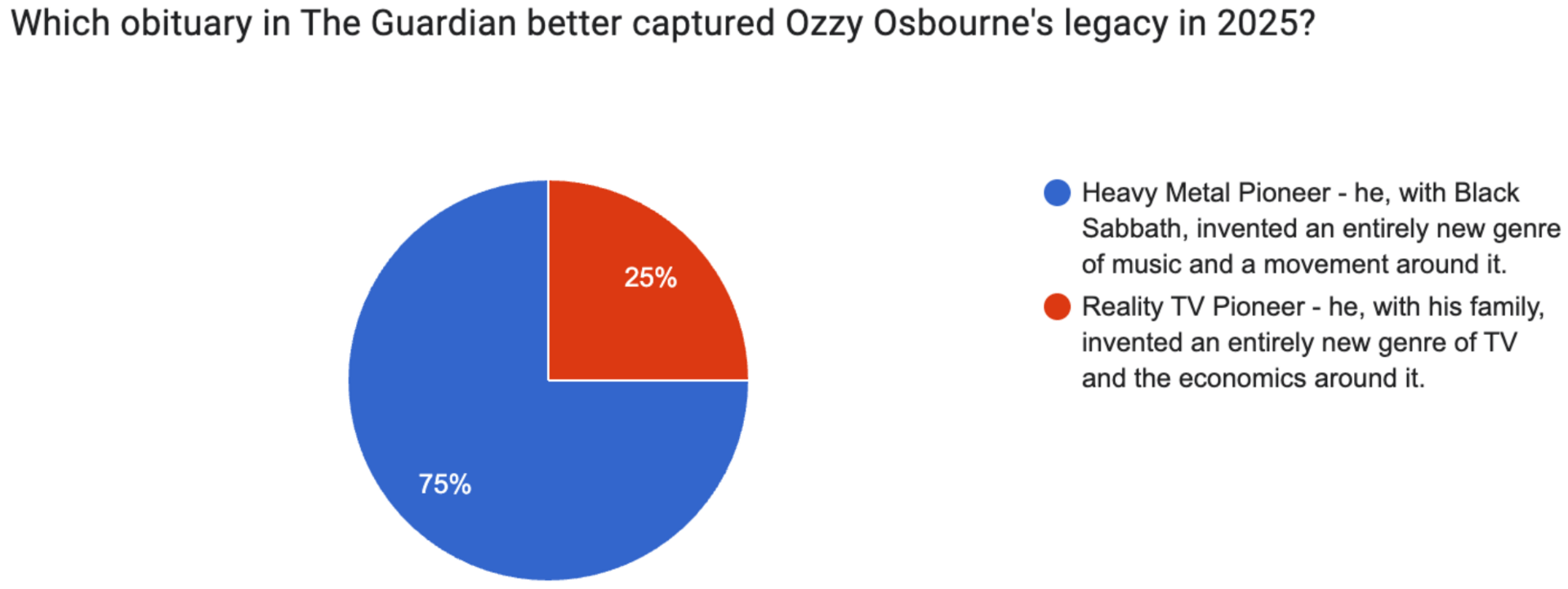
Was this forwarded to you? Signpost is a free weekly newsletter analysing what the media says, what it means, and why it matters. It’s free to subscribe. Alternatively, you can add me on LinkedIn.

